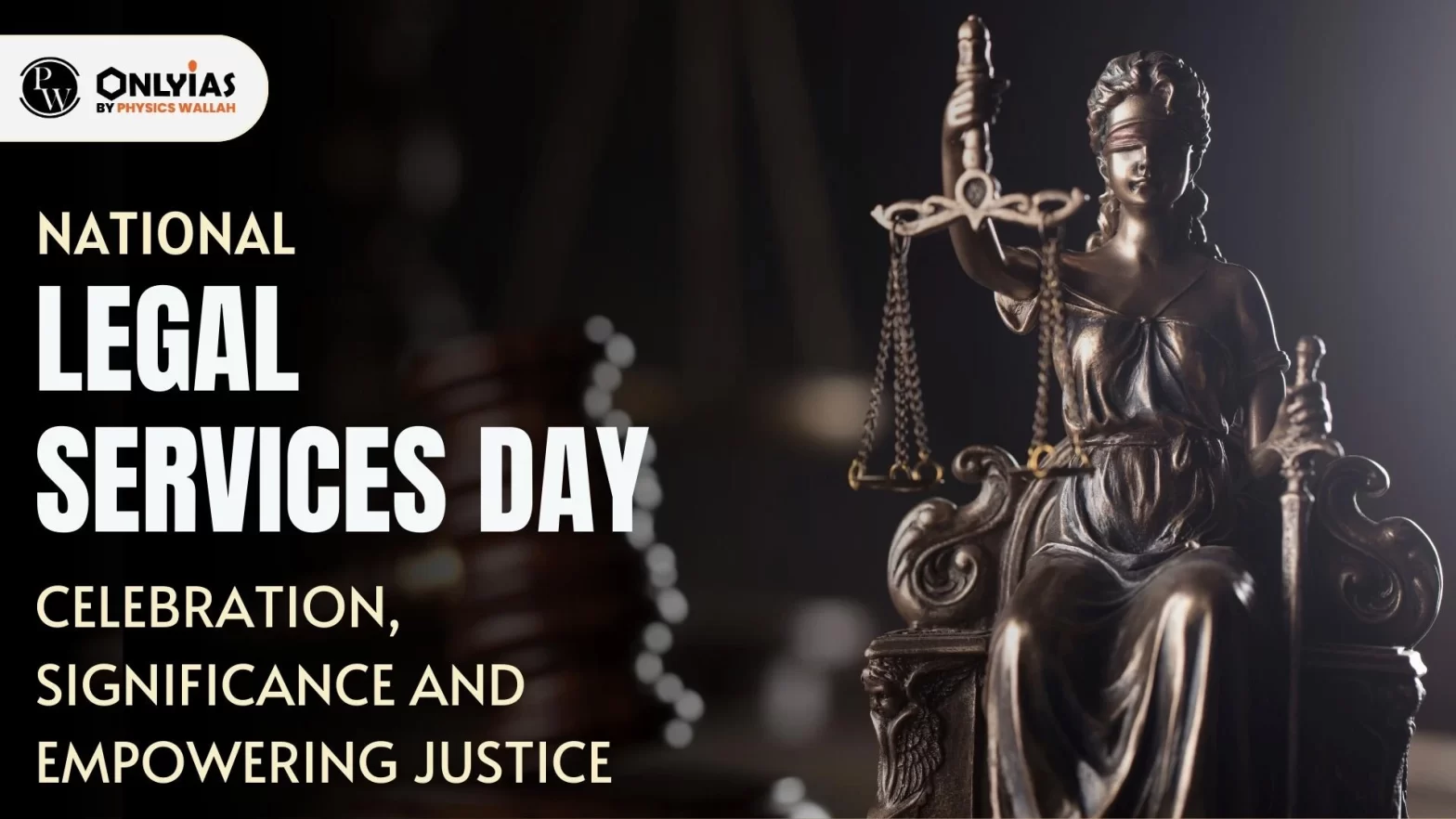Context: National Legal Services Day is celebrated in India on November 9th every year.

| National Legal Services Authority (NALSA) |
|
| State Legal Services Authority |
|
| Must Read | |
| NCERT Notes For UPSC | UPSC Daily Current Affairs |
| UPSC Blogs | UPSC Daily Editorials |
| Daily Current Affairs Quiz | Daily Main Answer Writing |
| UPSC Mains Previous Year Papers | UPSC Test Series 2024 |
National Legal Services Day is observed in India on November 9th each year to commemorate the enactment of the Legal Services Authorities Act, 1987, aimed at promoting legal awareness and providing free legal aid to the marginalized.
The theme for 2023 is "Access to Justice for All: Empowering the Marginalized through Legal Awareness."
The Act's objective is to provide free and competent legal services to the weaker sections of society, ensuring equal access to justice.
Those eligible for free legal aid include members of Scheduled Castes or Scheduled Tribes, victims of trafficking, women, children, persons with disabilities, individuals in underserved circumstances, industrial workers, those in custody, and those with an annual income below prescribed threshold.
NALSA is headed by the Chief Justice of India as the patron-in-chief, with the executive chairman being a retired or serving Supreme Court judge, and nominees selected by the president after consulting the Chief Justice of India.
NALSA is responsible for promoting legal aid, legal awareness, organizing Lok Adalats, conducting research, and ensuring citizens fulfill their fundamental duties.
Lok Adalats operate within the jurisdiction of the courts that organize them and can handle cases under the jurisdiction of those courts, excluding cases not compoundable by law.
The Act is enacted pursuant to Article 39-A of the Constitution of India, which provides for free legal aid to the poor and weaker sections of society to promote justice based on equal opportunity.
National Legal Services Day is significant as it highlights the commitment to providing legal aid and promoting legal awareness, particularly for the marginalized sections of society.
<div class="new-fform">
</div>
